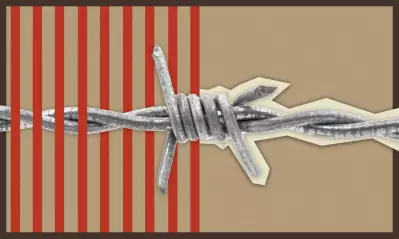Articles > Criminal Justice > Essential tools and courses for criminal justice students
Essential tools and courses for criminal justice students

Written by Omar Sommereyns

Reviewed by Christina Neider, EdD, Dean of the College of Social and Behavioral Sciences

Human nature is complex and sometimes shocking — especially the darker side. But criminal justice students aren’t typically the squeamish types. Instead, they dig into the practicalities that come with pursuing a criminal justice degree, learning to investigate and address relevant societal issues and the justice system overall.
A criminal justice degree can open a variety of career opportunities — in corrections, criminal courts, law enforcement and public administration. It can also foster critical-thinking skills that could improve your ability to gather evidence, decipher motives and analyze systemic problems. Ultimately, it can lead toward a more insightful and nuanced understanding of real-life criminal cases.
For working professionals or stay-at-home parents considering a criminal justice degree, know that you don’t have to put your job or life on hold to complete your classes. Generally speaking, there are online resources, specialized tools and designed courses available, so let’s inspect what you’ll need and what to expect before deciding which online courses for criminal justice are right for you.
Tools for criminal justice students
If you’re pursuing your degree online, make sure you have access to a computer with a secure, high-speed internet connection. You may need to use updated operating systems (e.g., Microsoft® Windows 10 or higher or the latest version of MacOS®) and updated web browsers (e.g., the latest versions of Google™ Chrome, Mozilla Firefox or Microsoft Edge for PC or the latest versions of Safari, Google Chrome or Mozilla Firefox for Apple®).
As for online software, you’ll likely be logging in to a learning management system like Blackboard®, and you may take one 5 or 6 week course at a time, which will entail such tasks as completing readings, writing discussion posts and working on specific course assignments. Some instructors may be experienced professionals who’ve worked as detectives, chiefs of police, wardens or judges, and so know from the inside out how the criminal justice system works.
Useful online resources for research and case studies
Your online institution should offer:
A robust university library with authoritative content and articles from reliable databases, relevant field studies and research platforms with the following:
- Detailed webpages with industry-appropriate links
- Digital textbooks on criminal justice subjects (curated by subject matter experts)
- Instructional videos
Your program should be able to offer you a good list of criminal justice-specific resources as well. Additionally, consult the Bureau of Justice Statistics to go over statistical coverage of crime and the itself.
Your instructor may also recommend that you check out other external criminal-justice resources, along with publications and journals that more closely align with your career expectations. For example, individuals looking to bolster their law-enforcement career may benefit from following these organizations: the Police Executive Research Forum (PERF), the International Association of Chiefs of Police (IACP), the National Sheriffs’ Association (NSA) and the Federal Bureau of Investigation (FBI).
Apps to improve organization and time management
Multiple apps are available to aid you as you progress in your online criminal justice classes. However, don’t overwhelm yourself with too many apps. Try to use apps that are based strictly on how they may facilitate your learning and productivity. For instance, an app like Evernote® can help you organize research and to-do lists for increased efficiency. Quizlet is a study aid that creates customized flash cards for memorizing legal terms and criminal justice concepts. Other apps can track and provide a report on how much time you spend on apps and websites so that you can adjust accordingly.
Must-have courses for criminal justice students
For some bachelor’s degrees in criminal justice, core courses will take you through fundamental concepts and skills. These include:
- A survey of criminal justice (to provide an overview of both historical and philosophical context)
- A course on ethics in criminal justice (to explain universal standards and codes of professional responsibility)
- A course on diversity in criminal justice (to provide an awareness of multiculturalism as it plays out in criminal justice)
- A theories class on criminology and victimology (to examine potential causes of criminal behavior and victimization)
Specialized courses will allow you to enhance specific skills. Here are some examples:
- For a Bachelor of Science in Correctional Program Support Services, you may have a survey on the state of the corrections system in the U.S. and a course on working with the correctional population, along with a class on social psychology and criminal behavior.
- For a Bachelor of Science in Criminal Justice Administration, you may take courses in organizational behavior and management, mental health services, and crisis intervention and criminal justice problem-solving methods.
- For a Bachelor of Science in Public Administration, you may have classes on public-sector communications, public budgeting, personnel management and the public-sector environment.
How criminal justice studies complement career aspirationsÂ
You may already have a passion for criminal justice, but what you listen to on your favorite podcast or what you see on TV may not always equate to the multifaceted realities of this field.
First, take a bit of time to read about the difference between criminal justice and criminology. The subtle difference is that criminology is a social science that focuses on criminal behavior and its factors, while criminal justice is more pragmatic: the actual application of criminology.
Remember: Online criminal justice classes are about attaining an educational degree that empowers you with career-relevant skills.
At the end of the day, criminal justice students may consider a variety of career paths, from becoming a loss prevention manager to a police captain or sergeant. To figure out which path is for you, network and connect with industry pros while you’re in school.
See if your online university has a compelling alumni network and find like-minded professionals. (Local alumni chapters may even host networking events in your region.) Then, look into virtual networking events and study sessions, and browse your school’s social media networks to expand your own network to a global level. You may even consider joining a criminal justice association.
Meanwhile, tap your institution’s career services department to help identify your goals. The school should offer career coaching and guidance on job searching, resumé building, personal brand building, interview preparation and salary negotiation.
Support and study help for criminal justice students
Even while taking online courses, criminal justice majors will be able to interact with peers and mentors through group projects, research communities, recognized student organizations and tutoring services.
Ensure you talk to your academic advisors, as they should be able to help clarify your academic and career goals. Ask about mentorship programs too. Students, faculty or alumni in such programs can share their knowledge and experience while helping you hone leadership skills, engage in developmental activities and potentially gain industry contacts.
Need help with writing research papers and essays? Build your confidence and skills by accessing your university’s online writing resources, which should include a variety of articles, videos, guides and tutorials about how to write effectively, along with tools to check your writing, cite sources faster, avoid ethical stumbles and spark creative flow.Â
Criminal justice students can get started here
At °®ÎŰ´«Ă˝, the educational journey for criminal justice students is all-encompassing. The aforementioned courses, tools, resources and support systems are all at your fingertips after you find the degree that best fits your needs, including:
- An associate degree (Associate of Arts in Criminal Justice)
- A bachelor’s degree (Bachelor of Science in Correctional Program Support Services, Bachelor of Science in Criminal Justice Administration or Bachelor of Science in Public Administration)
- A master’s degree (Master of Public Administration or Master of Science in Administration of Justice and Security)
Not sure which degree you should pursue? Request more information and plan for your future.
Microsoft is a registered trademark of Microsoft Corporation in the U.S. and/or other countries.
MacOS is a registered trademark of Apple Inc., registered in the U.S. and other countries.
Google is a registered trademark of Google LLC.
Apple is a registered trademark of Apple Inc., registered in the U.S. and other countries.
Blackboard is a registered trademark of Blackboard Inc.
EBSCOhost is a registered trademark of EBSCO Industries, Inc.
Evernote is a registered trademark of Evernote Corporation.

ABOUT THE AUTHOR
Omar Sommereyns is a journalist and content strategist based in Miami, Florida. His career has involved working as a writer and editor for print and digital publications as well as creating content for various brands and tech companies like Amazon and Monster.com. He's tackled subject matter ranging from art, culture, travel, dining and music to healthcare, nutrition, technology and career advice. Currently, he's working on a collection of his poetry and a novella.

ABOUT THE REVIEWER
Christina Neider is the dean of the °®ÎŰ´«Ă˝ College of Social and Behavioral Sciences. Neider’s career spans more than 30 years in academia, healthcare and the U.S. Air Force. She has held several academic leadership roles at °®ÎŰ´«Ă˝, and she is the Vice President of membership for the Arizona Chapter of the Healthcare Information and Management Systems Society.
This article has been vetted by °®ÎŰ´«Ă˝'s editorial advisory committee.Â
Read more about our editorial process.


